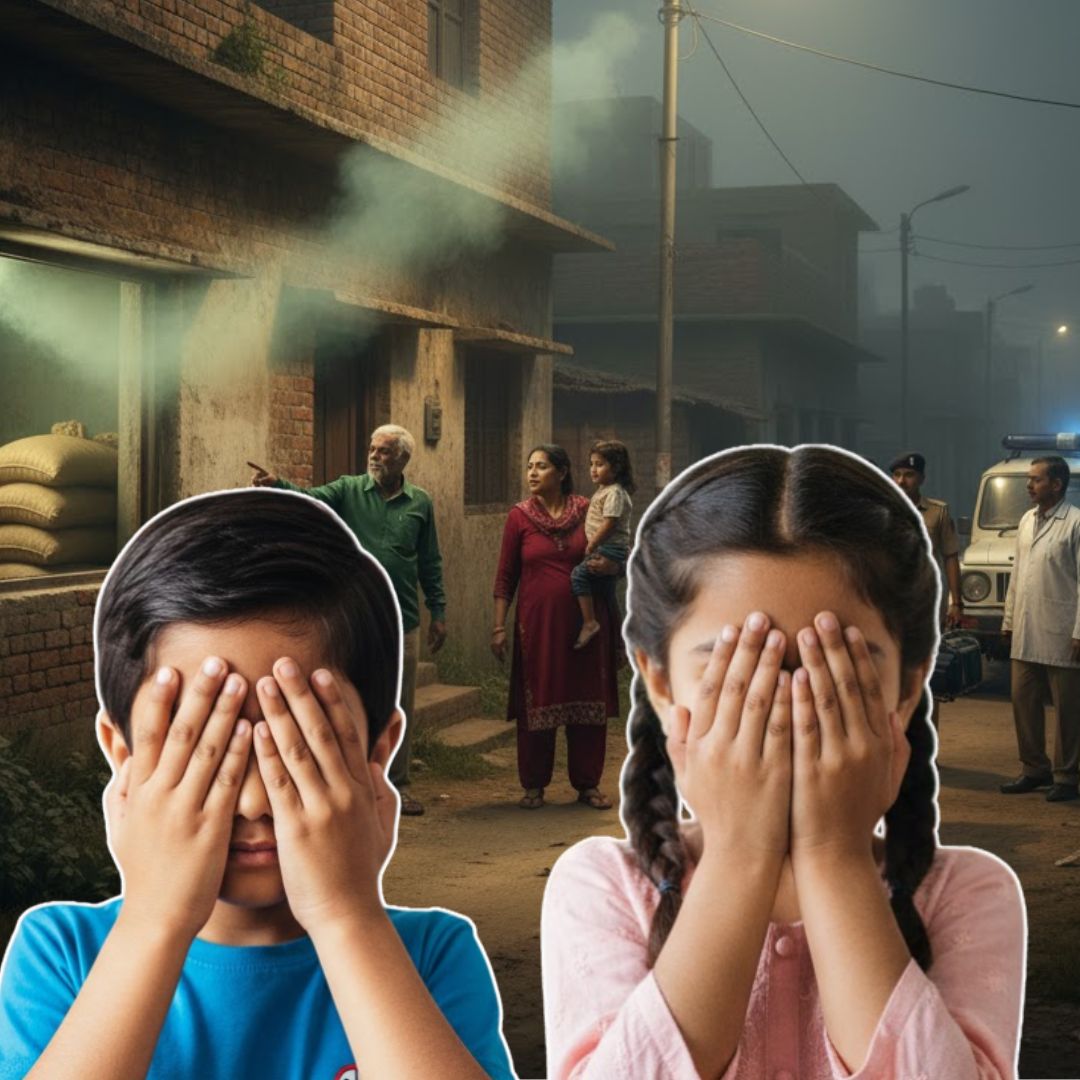In Gwalior’s Gola Ka Mandir area, a tragic pesticide gas leak has claimed the lives of two children and left their parents in critical condition.
The incident, which unfolded late Sunday night in a rented house where pesticides were improperly stored with wheat sacks, highlights grave concerns over chemical safety regulations and enforcement in residential areas.
Tragic Incident of Toxic Gas Leak
The Sharma family, tenants in a three-storey building owned by Shivkumar Yadav, was asleep when lethal phosphine gas, emanating from around 50 aluminium phosphide tablets used to fumigate nearly 250 quintals of wheat, seeped into their living quarters.
Four-year-old Vaibhav and his 13-year-old sister Kshama began showing symptoms of suffocation along with their parents, Satyendra and Rajni Sharma. While the parents and daughter remain on ventilator support in hospital, Vaibhav succumbed to asphyxiation during treatment. However the daughter also succmbed a day later.
Police and forensic teams confirmed the gas leak, and investigations revealed that the landlord had purchased restricted pesticides from an unregulated local store. Neighbours and relatives have been left devastated by the loss of the young children, describing the family as well-regarded and hardworking.
Health Risks and Official Response
Aluminium phosphide tablets, commonly known as sulphas, release phosphine gas upon contact with moisture, which is odorless and highly toxic. Medical professionals warn that exposure leads to respiratory failure and rapid organ damage, often fatal without immediate treatment.
The use of such fumigants is banned in domestic settings and limited to licensed warehouses, but the incident exposes critical loopholes in regulation and supply-chain control. Gwalior police have registered a case against the landlord who absconded after the tragedy.
As investigations proceed, officials have begun district-wide audits and awareness campaigns to educate farmers and households on proper pesticide storage and the deadly dangers of mishandling.
Broader Context and Repeated Negligence
This incident is part of a worrying pattern where inadequate enforcement of pesticide regulations results in preventable poisonings across India. Unsafe storage of fumigants in homes and local markets selling restricted chemicals without licences have led to numerous fatalities before.
Despite guidelines issued by health and agricultural authorities, lack of vigilance, community awareness, and strict penalties continue to jeopardise public health. The Gwalior tragedy reinforces the urgent need for integrating chemical safety into public health priorities, along with improved monitoring and community participation.
The Logical Indian’s Perspective
The loss of two innocent children due to a toxic gas leak caused by negligence is heartbreaking and unacceptable. It exposes systemic failures that allow hazardous pesticides to pose lethal dangers in residential environments.
Safety cannot be compromised in a society that values compassion and human dignity. The Logical Indian calls for comprehensive reforms to enforce safe pesticide use, regulate markets, and strengthen grassroots awareness and accountability. Only through collective vigilance, empathy, and policy action can such tragedies be averted in the future.













